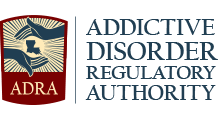Understanding the signs, symptoms, and effects of attention-deficit/hyperactivity disorder is an important part of the effort to get treatment for your child. At Acadiana Treatment Center in Sunset, Louisiana, we’re proud to be a source of information and comprehensive care for adolescents who have been struggling with ADHD.
Understanding ADHD
Attention-deficit/hyperactivity disorder, more commonly known as ADHD, is a brain condition characterized by a pattern of inattention, impulsivity, and hyperactivity that interferes with an adolescent’s ability to function on a daily basis. Everyone gets a little unfocused and impulsive from time to time, but when an adolescent suffers from ADHD, those behaviors are much more severe, occur much more often, and make it difficult for them to participate in social activities, at school, or at their after-school job.
An adolescent who is suffering from symptoms of inattention associated with ADHD may struggle to complete homework assignments or miss significant details. They might also regularly lose important items like school supplies or their cellphone. If an adolescent is experiencing hyperactivity or impulsivity symptoms, they might interrupt others during conversations and seem fidgety or on edge all the time.
The effects of attention-deficit/hyperactivity disorder can seriously impact a child’s life if left untreated. But with proper care, your child can learn to manage the symptoms of ADHD and find greater success in school, their social life, and their community. Seeking treatment for ADHD can guide your child toward a brighter future.
Statistics
The National Institute of Mental Health (NIMH) and the Centers for Disease Control and Prevention (CDC) have reported the following statistics about ADHD in the United States:
- Approximately 3.3 million adolescents ages 12-17 were diagnosed with ADHD in 2016.
- Among the 9% of adolescents ages 13-18 with a lifetime prevalence of ADHD, nearly half (4%) showed severe impairment in their ability to function on a daily basis.
- Only a little more than half of adolescents ages 12-17 (62%) received treatment for their ADHD symptoms in 2016.
- ADHD affects three times as many adolescent boys (13%) as adolescent girls (4%).
Causes & Risk Factors
There’s no single cause for attention-deficit/hyperactivity disorder. In most cases, many influences contribute to an increased risk for developing ADHD. These are some of the most common causes and risk factors for ADHD:
- A family history of ADHD
- Very low birth weight
- Smoking, alcohol use, or drug use during pregnancy
- Exposure to environmental toxins during pregnancy
- Exposure to environmental toxins at a young age
Signs & Symptoms
When an adolescent struggles with attention-deficit/hyperactivity disorder, they have trouble controlling the behaviors associated with this condition. Without treatment, the effects of ADHD can significantly impair a child’s ability to participate in daily activities. Adolescents who are suffering from ADHD can experience many different signs and symptoms, such as:
Behavioral symptoms:
- Consistently losing items, such as school supplies, keys, or their cellphone
- Fidgeting or squirming
- Frequently interrupting people or blurting out answers before questions have been completed
- Commonly talking nonstop
- Always in motion, like they are driven by an invisible motor
Physical symptoms:
- Often feeling restless
- Struggling to sit still or stay seated when expected
- Inability to engage in activities quietly
Mental symptoms:
- Easily distracted by thoughts or things around them
- Forgetting to do daily activities like chores, homework, or errands
- Avoiding tasks that require sustained mental effort
- Occasional inability to focus when spoken to directly
Effects
Attention-deficit/hyperactivity disorder is a complex condition that can present in many different ways. Some adolescents who are battling ADHD suffer from just the symptoms of inattention, while others struggle with a combination of both inattention and hyperactivity-impulsivity. It is crucial that your child receives treatment for the specific symptoms they are experiencing so that they can start to manage the effects of the mental health challenge they are facing. Without professional treatment for ADHD, these are some of the negative effects your child is at risk of experiencing:
- Strained relationships with family members
- Poor performance at school, leading to academic failure
- Difficulty succeeding at their after-school job
- Social rejection by peers
- Development of other mental health conditions, such as conduct disorder or antisocial personality disorder
- Substance abuse or addiction
- Traffic accidents resulting in violations and injury are more common among people who struggle with ADHD
If your child is suffering from the effects of ADHD, help is available. When you seek proper professional care, you can help your child avoid any long-term negative effects of ADHD. Your child can learn how to manage their ADHD symptoms and start living a much healthier life.
Co-Occurring Disorders
An adolescent who struggles with ADHD may have an increased risk for developing other mental health conditions. A child who is dealing with more than one mental health challenge has a co-occurring disorder. Some mental health disorders that may co-occur with ADHD include:
- Oppositional defiant disorder
- Conduct disorder
- Antisocial personality disorder
- Obsessive-compulsive disorder (OCD)
- Disruptive mood dysregulation disorder
- Autism spectrum disorder
- Anxiety disorder
- Depression
- Intermittent explosive disorder
- Substance use disorder












